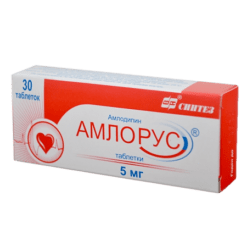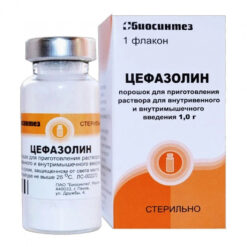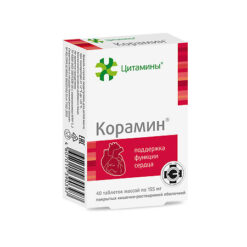-
×


-
×


-
×


-
×


Subtotal: €37.25








Subtotal: €37.25








Subtotal: €37.25
€5.88 €5.14
Pharmgroup:
NSAIDs.
Pharmic action:
NSAIDs, has anti-inflammatory, analgesic, antipyretic and antiaggregant effects.
Unlike other NSAIDs it selectively inhibits COX-2, inhibits synthesis of Pg in inflamed area; less pronounced inhibitory effect on COX-1 (causes side effects connected with inhibition of Pg synthesis in healthy tissues less frequently).
Rheumatoid arthritis, articular syndrome during exacerbation of gout, psoriatic arthritis, ankylosing spondylitis, osteochondrosis with radicular syndrome, osteoarthritis, myalgia of rheumatic and non-rheumatic origin, inflammation of ligaments, tendons, bursitis, including post-traumatic inflammation of soft tissues, pain syndrome of various origins (including in the postoperative period, with injuries, algodismenorrhea, toothache, headache, arthralgia, lumbar ischalgia), febrile syndrome in infectious and inflammatory diseases.
Pharmaceutical group:
NSAIDs.
Pharmaceutical action:
NSAIDs have anti-inflammatory, analgesic, antipyretic and antiplatelet effects.
Unlike other NSAIDs, it selectively suppresses COX-2 and inhibits Pg synthesis at the site of inflammation; has a less pronounced inhibitory effect on COX-1 (less likely to cause side effects associated with inhibition of Pg synthesis in healthy tissues).
Nimesulide should be used with caution in patients who have a history of bleeding, patients with diseases of the upper gastrointestinal tract, or patients receiving drugs that reduce blood clotting or drugs that inhibit platelet aggregation.
Since Nimesulide is partially excreted by the kidneys, its dosage for patients with impaired renal function should be reduced, depending on the level of urination. Given reports of visual disturbances in patients taking other NSAIDs, treatment should be stopped immediately if any visual disturbance occurs and the patient should be examined by an ophthalmologist.
The drug can cause fluid retention in tissues, so patients with high blood pressure and cardiac problems should use Nimesulide with extreme caution. Patients should undergo regular medical monitoring if they, along with nimesulide, take medications that are characterized by an effect on the gastrointestinal tract. Patients whose work activities require concentration (constant attention) should be aware that the drug may cause drowsiness or dizziness.
To reduce the risk of developing adverse events from the gastrointestinal tract, the minimum effective dose should be used for the shortest possible short course.
Nimesulide
Active ingredient:
nimesulide 100 mg
Hypersensitivity, complete or incomplete combination of bronchial asthma, recurrent polyposis of the nose or paranasal sinuses and intolerance to ASA and other NSAIDs (including a history), erosive and ulcerative lesions of the mucous membrane of the stomach and duodenum, active gastrointestinal bleeding, cerebrovascular or other bleeding, inflammatory bowel diseases (Crohn’s disease, ulcerative colitis) in the acute phase, hemophilia and other bleeding disorders, decompensated CHF, liver failure or any active liver disease, hepatotoxic reactions when using nimesulide in history, alcoholism, drug addiction, severe chronic renal failure (creatinine clearance less than 30 ml/min), progressive kidney disease, confirmed hyperkalemia, period after coronary artery bypass grafting, simultaneous taking other hepatotoxic drugs, pregnancy, lactation, children under 12 years of age.
With caution. IHD, cerebrovascular diseases, CHF, dyslipidemia/hyperlipidemia, diabetes mellitus, peripheral arterial diseases, smoking, renal failure (creatinine clearance 30-60 ml/min), anamnestic data on the development of ulcerative lesions of the gastrointestinal tract, the presence of Helicobacter pylori infection, old age, long-term use of NSAIDs, alcoholism, severe somatic diseases, simultaneous use of anticoagulants (including warfarin), antiplatelet agents (including ASA, clopidogrel), oral corticosteroids, selective serotonin reuptake inhibitors (including citalopram, fluoxetine, paroxetine, sertraline).
Gastrointestinal tract: often – diarrhea, nausea, vomiting; infrequently – constipation, flatulence, gastritis; very rarely – abdominal pain, stomatitis, tarry stools, gastrointestinal bleeding, ulcer and/or perforation of the stomach or duodenum.
Central nervous system: infrequently – dizziness; rarely – a feeling of fear, nervousness, nightmares; very rarely – headache, drowsiness, encephalopathy (Reye’s syndrome).
Respiratory organs: infrequently – shortness of breath; very rarely – bronchial asthma, bronchospasm. Cardiovascular system: infrequently – arterial hypertension; rarely – tachycardia, hemorrhages, hot flashes.
Sense organs: rarely – blurred vision, very rarely – dizziness.
Skin and mucous membranes: infrequently – itching, rash, increased sweating; rarely: erythema, dermatitis; very rarely: urticaria, angioedema, facial swelling, erythema multiforme exudative, incl. Stevens-Johnson syndrome, toxic epidermal necrolysis (Lyell’s syndrome).
Liver and biliary system: often – increased “liver” transaminases; very rarely – hepatitis, fulminant hepatitis, jaundice, cholestasis.
Kidneys and urinary system: infrequently – edema; rarely – dysuria, hematuria, urinary retention, hyperkalemia; very rarely – renal failure, oliguria, interstitial nephritis.
Hematopoietic organs: rarely – anemia, eosinophilia; very rarely – thrombocytopenia, pancytopenia, purpura, prolonged bleeding time.
Allergic reactions: rarely – hypersensitivity reactions; very rarely – anaphylactoid reactions.
General reactions: rarely – general weakness; very rarely – hypothermia. If you experience other side effects not mentioned above or if your health worsens, please contact your doctor immediately.
The effect of medications that reduce blood clotting is enhanced when used simultaneously with nimesulide.
Nimesulide may reduce the effect of furosemide. Reduces the therapeutic effect of antihypertensive drugs. Nimesulide may increase the possibility of side effects while taking methotrexate.
Plasma lithium levels increase when lithium and nimesulide are taken simultaneously. Due to the high degree of binding of nimesulide to plasma proteins, patients who are simultaneously treated with hydantoin and sulfonamides should be under medical supervision, undergoing examinations at short intervals. Nimesulide may enhance the effect of cyclosporine on the kidneys.
Use with glucocorticosteroids and serotonin reuptake inhibitors increases the risk of developing gastrointestinal bleeding.
Symptoms: apathy, drowsiness, nausea, vomiting. They are usually reversible with supportive care. Gastrointestinal bleeding, arterial hypertension, acute renal failure, and respiratory depression may occur.
Treatment: The patient requires symptomatic treatment and supportive care. There is no specific antidote. If an overdose occurs within the last 4 hours, it is necessary to induce vomiting, take activated carbon (60-100 g per adult), and osmotic laxatives. Forced diuresis and hemodialysis are ineffective due to the high binding of the drug to proteins.
In a dry place, protected from light, at a temperature not exceeding 25°C.
3 years
Ozon, Russia
| Shelf life | 3 years |
|---|---|
| Conditions of storage | In a dry, light-protected place at a temperature not exceeding 25 ° C. |
| Manufacturer | Ozon, Russia |
| Medication form | pills |
| Brand | Ozon |
Buy Nimesulide, tablets 100 mg 20 pcs with delivery to USA, UK, Europe and over 120 other countries.